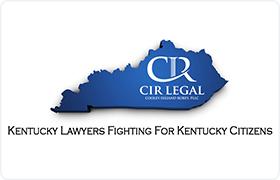 Hulen Divorce Lawyers, Kentucky
Hulen Divorce Lawyers, Kentucky
Sponsored Law Firm
-
 x
x

Click For More Info:
-
Cooley Iuliano Robey, PLLC
201 West Short Street Suite 500 Lexington, KY 40507» view mapDivorce & Family Law Finally – Lawyers Focused On You
Our goal is simple – provide top-notch legal representation focused on achieving our client’s goals. Here, you aren’t just another file number with an expected revenue stream.
800-657-2510
Includes: Alimony & Spousal Support
Not enough matches for Hulen Divorce lawyer.
Below are all Hulen Divorce & Family Law lawyers.
Lawyers
1-1 of 1 matches



 R. Nicole Iuliano Lexington, KY
R. Nicole Iuliano Lexington, KY Practice AreasExpertise
Practice AreasExpertise